Dear friends, partners, and supporters, with the year approaching to an end we would like to look back and reflect on some of the major achievements we have made together this year from restoring the swathes of delta landscape, return of the wildlife, and to support of local economies and awareness-raising.
1. Wetlands and steppe restoration
We aim to restore valuable wetland and steppe areas that provide multiple benefits to nature and people. This year we worked on a few nature restoration projects, two of which we are happy to highlight. The first steps were made to restore 500 ha of the Tarutino steppe that were illegally plowed a few years ago. While the damaged steppe areas have undergone a slow natural regeneration process since then, there was a need to accelerate the recovery of this precious habitat. Read more and watch the video. The second success is the restoration of the connection of the Staronekrasovsky floodplains in Ukraine with the Danube River in cooperation with Izmail Department of Water Management. For the first time in many years, the Hromadsky canal has become flowing again, which will bring Staronekrasovsky floodplains and adjacent Lung, Safyany, and Katlabuh lakes back to life. Read more and watch the video.
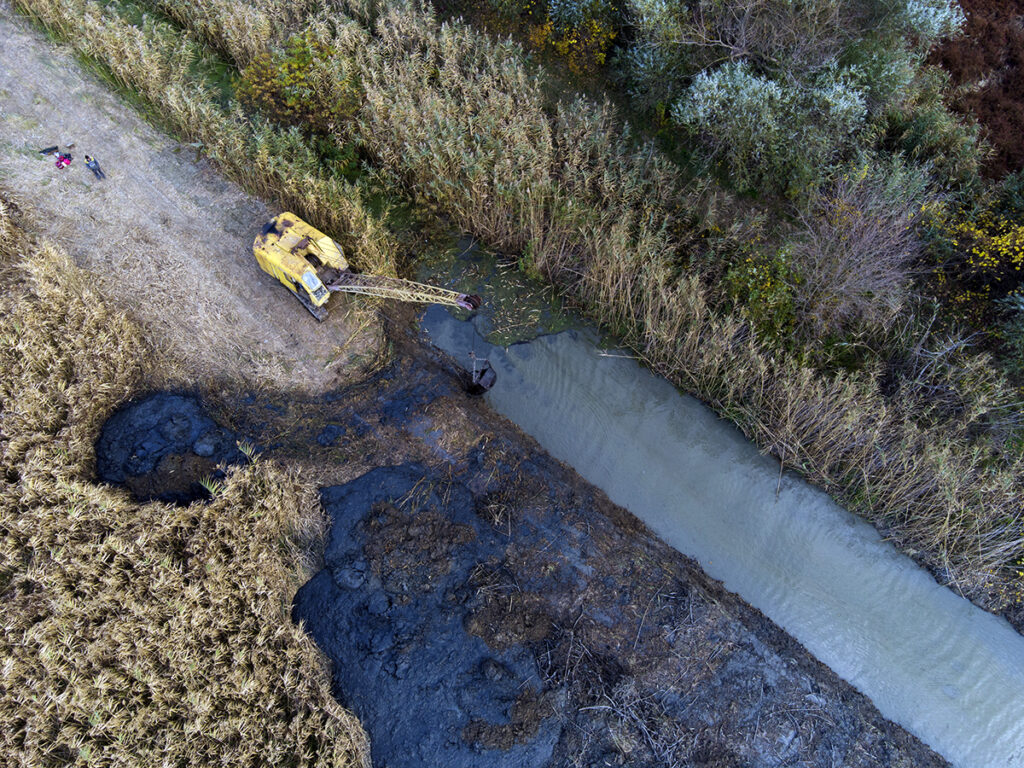
2. Large herbivores comeback
Large herbivores play a crucial role in the ecosystem though nowadays their natural populations are critically low. Thus, we focus a big part of our efforts on their comeback to the Danube Delta rewilding area to resume their natural grazing process. 3 red deer and 3 fallow deer came from Feldman Ecopark to the Ermakiv island. Animals will complement the natural grazing on the island and promote eco-tourism in the region. Read more and watch the video. The second herd of 20 kulan has arrived on the Tarutino Steppe and has been temporarily settled in a 31-hectare acclimatization enclosure. The first group of kulan, that arrived on the steppe in May 2020, has just been released into the wild. The rangers from the local community will mitigate any potential threats to the animals. Read more and watch the video.
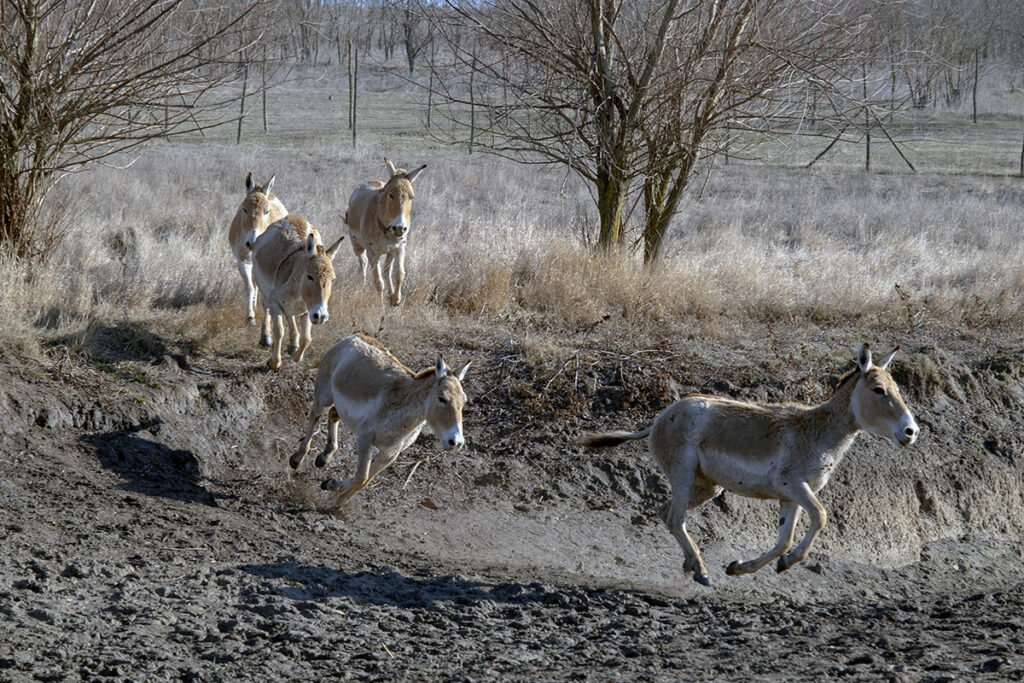
3. Support and reintroduction of birds
Every species in the natural system play its role. Birds can also be an umbrella or keystone species. Six young eagle owls from Odessa zoo were released in the Danube Biosphere Reserve in Ukraine. Their reintroduction, which is part of a long-term programme to establish a viable population in the region, will enhance local food webs. Two birds were tagged by GPS transmitters, to track how they will move around the delta. Read more and watch the video. Meanwhile the Dalmatian pelicans got the helping hand for nesting and raising their chicks. Two artificial breeding platforms for Dalmatian pelicans were installed in the zone of strict protection of the Danube Biosphere Reserve. Such platforms are an effective tool to foster the establishment of the new breeding colonies of pelicans. Read more and watch the video.
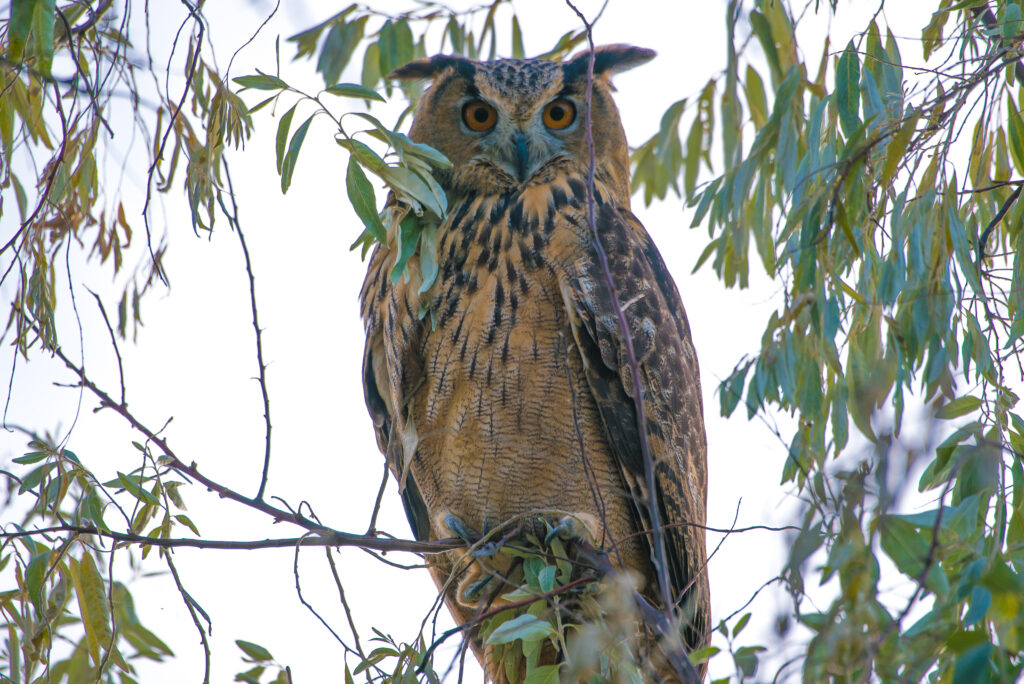
4. Community festival
Wild restored natural areas should bring profit to local people. In September the unique steppe in the southwest of Ukraine hosted the Ethno-eco festival “Tarutino steppe”, organized together with Borodino Territorial Community and the Center for ethnographic, green rural tourism and family recreation “Frumushika-Nova”. The festival showed its visitors the beauty of the steppe and the richness of the culture of this multinational region. The development of ecological and ethnographic tourism in the region will help to preserve the valuable steppe area and provide economic support to the local community. The visitors could enjoy the excursions to the steppe, the spectacular photo exhibition, delicious local food and original crafts, songs and dances of Bulgarian, Moldavian, Ukrainian and other peoples inhabiting Bessarabia and more. Read more and watch the video.
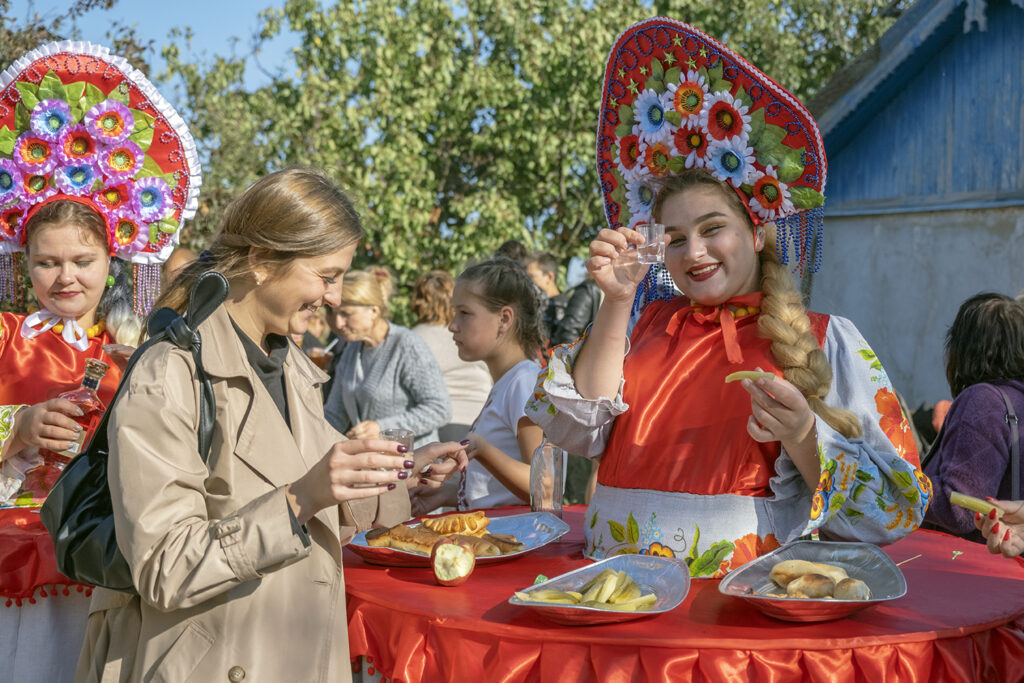
5. Nature-based tourism development
Rewilding locations in the Danube Delta welcome people with different interests. Bird watching hide was built on Ermakiv island near the lake where waterfowl rest and feed throughout the year. Read more in the article. Eco-tourism infrastructure was developed in the Tarutino steppe eco-park together with the Center of Regional Studies to make the memories of the visit to the steppe even more unforgettable. Watch the video and visit the steppe.
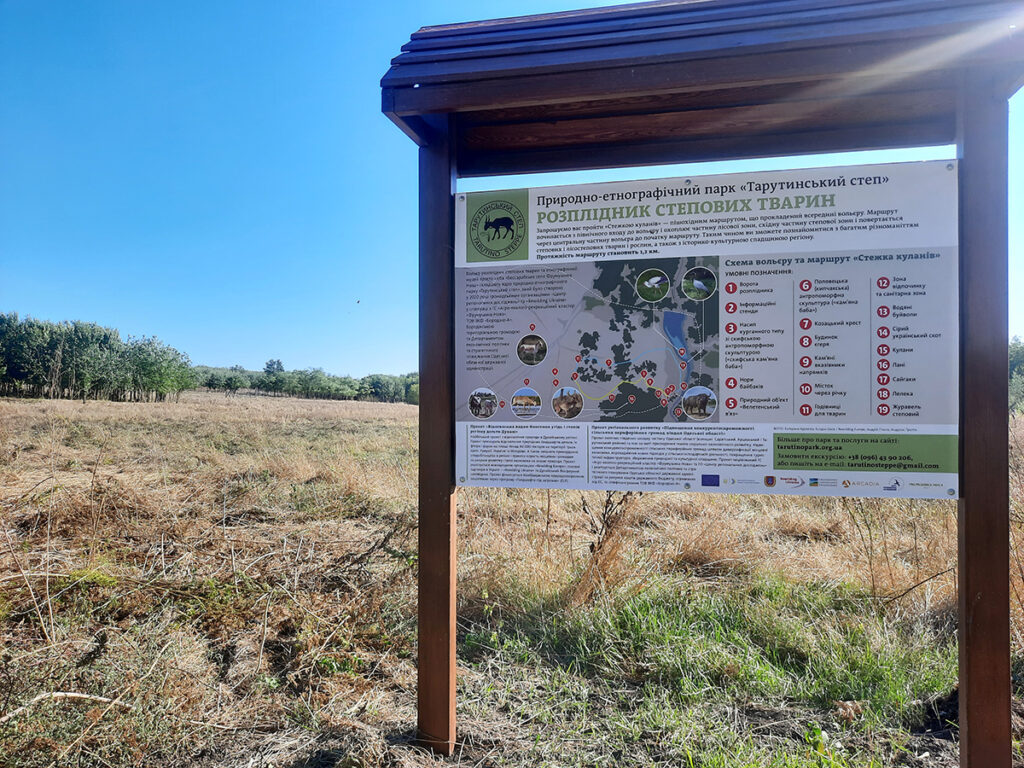
We sincerely thank all our partners for the joint efforts! Only together can we preserve and restore the nature of the Danube Delta region. This work became possible with the financial support of the Endangered Landscapes Programme, LIFE programme, and EU funds through governmental financing.